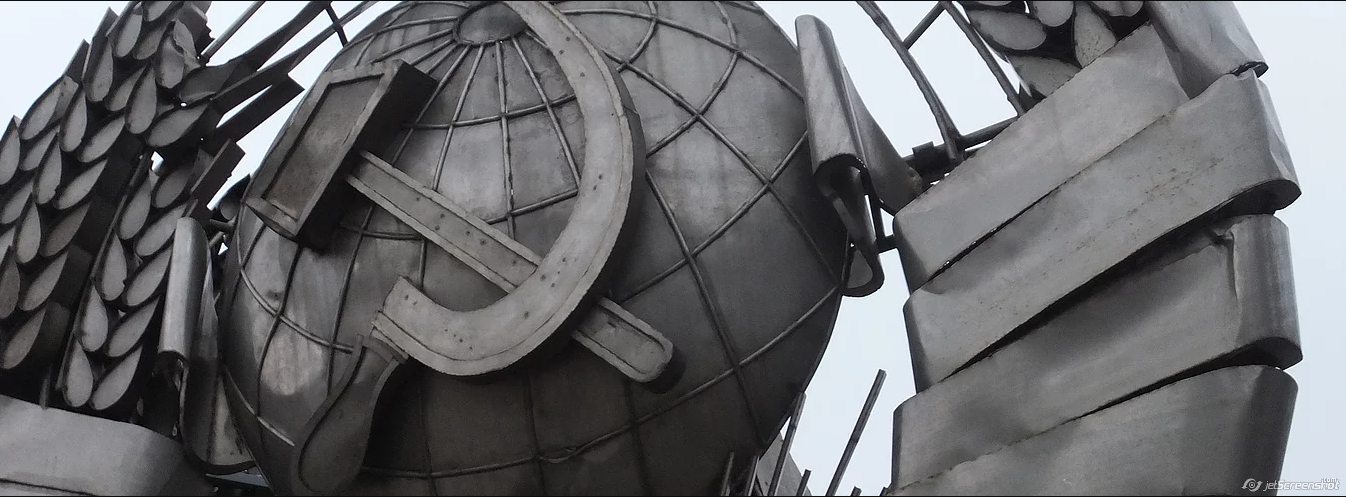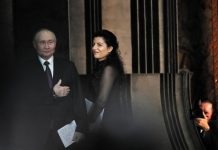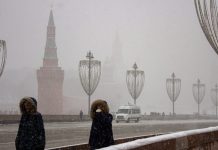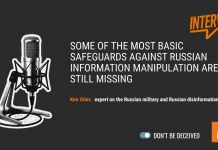
By Edward Lucas, for CEPA
Edward Lucas seams together a Soviet chic garment and the Kremlin’s inability to deal honestly with history.
Nazi memorabilia is not cool. If you hold your nose and look on the internet, you can find flags, T-shirts and bumper stickers commemorating the Third Reich on sale at outlets that also sell pagan-themed cigarette lighters and Ku Klux Klan regalia. But no reputable retailer would stock such merchandise.
It would be reasonable to assume that the symbols of the murderous, totalitarian Soviet regime should be shunned too. Adolf Hitler and Josef Stalin were allies until the Nazi regime’s surprise attack on the Soviet Union in 1941. In the infamous Molotov-Ribbentrop pact of August 1939 the two regimes carved up the map of Europe between them, consigning a large slice of the continent to the meat-grinder. An internet search provides pictures of the Nazi and Soviet forces cheerfully parading and saluting each other over the corpse of Poland.
But the world’s largest retailer, Walmart, stocks “cool” T-shirts featuring the Soviet emblem, the hammer and sickle, for $19.99. (These garments are among the 162 Soviet-themed products made by Buy Cool Shirts, another U.S company.)
Walmart’s own rules ban the sale of products related to “any historical or news event” that could be considered “offensive.” Mass murder, deportation, torture, religious persecution, and the obliteration of whole countries under decades-long military occupation are certainly historical events, and would surely meet any reasonable definition of “offensive.”
Lithuania’s foreign minister, Linas Linkevičius, has urged Walmart to stop selling these shirts. “We trust @Walmart’s moral stance & call to withdraw products with the symbols of mass murders,” he tweeted. In his country alone, Soviet persecution killed 50,000 people in the 1944-1953 period; a further 20,000 Lithuanians perished in partisan warfare against the Soviet occupiers.
At some point, outrages do fade into the past. Few would object to jocular references to the Spanish Inquisition. But the modern Vatican is not trying to re-establish a clerical thought police, or use torture against heretics. In the case of the Soviet empire, the historical wounds are still raw, and resurgent Russian imperialism a grave danger.
Other countries which suffered at Soviet hands in the past, and those that fear Russian aggression now, should join the Lithuanian protest. So too should their allies.
The furor highlights a much deeper point: Russia’s ambiguous relationship with its Soviet past, and the outside world’s indulgence of it. Vladimir Putin, notoriously, called the collapse of the Soviet Union the “geopolitical catastrophe” of the last century. Russia makes little secret of the Soviet Union’s flaws (books such as Alexander Solzhenitsyn’s “Gulag Archipelago” are easily available). But it relativizes them. Yes, Stalin did bad things and made terrible mistakes. Yes, the planned economy ended in collapse. But the Soviet Union was a great country. It modernized its economy and society against great odds, and defeated Nazi Germany and its allies. Many in the West, out of sentiment or ignorance, feel that this approach is at least in part justified.
This failure to deal honestly with history fuels Russia’s current conflict with the West. The collapse of Soviet rule was either a liberation or a defeat; it cannot be both. If it is a defeat, then the modern Russian narrative of humiliation and dispossession makes sense. The West heaped insult on injury. Now it is reaping the harvest.
If, by contrast, 1991 was a joyful liberation for Russia, then the question becomes how the Kremlin inherited—and betrayed — that legacy. Try putting that on a T-shirt.
By Edward Lucas, for CEPA
*At the time of writing, Walmart had not responded to a letter of complaint from the Lithuanian ambassador to the United States; its press team had not replied to my queries.
Europe’s Edge is an online journal covering crucial topics in the transatlantic policy debate. All opinions are those of the author and do not necessarily represent the position or views of the institutions they represent or the Center for European Policy Analysis.




